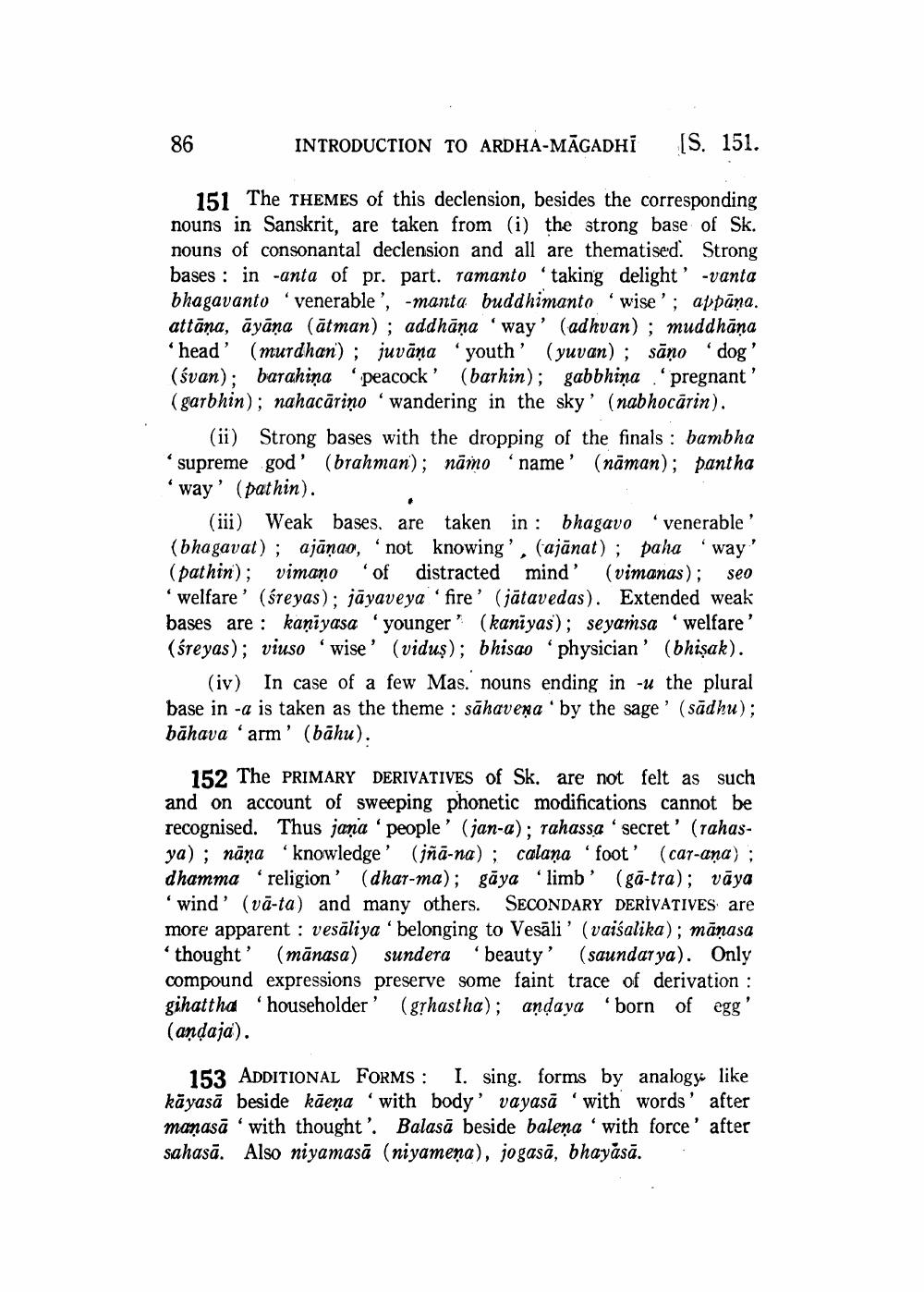________________
86
INTRODUCTION TO ARDHA-MĀGADHI
(S. 151.
151 The THEMES of this declension, besides the corresponding nouns in Sanskrit, are taken from (i) the strong base of Sk. nouns of consonantal declension and all are thematised. Strong bases : in -anta of pr. part. Tamanto 'taking delight' -vanta bhagavanto 'venerable', manta buddhimanto 'wise'; appāna. attana, āyāna (atman) ; addhāma wayo (adhoan) ; muddhāna 'head' (murdhan); juvāņa 'youth' (yuvan) ; sāņo 'dog' (śvan); barahiņa 'peacock' (barhin); gabbhiņa pregnant' (garbhin); nahaсārino 'wandering in the sky' (nabhocărin).
(ii) Strong bases with the dropping of the finals : bambha supreme god' (brahman); nāmo 'name' (nāman); pantha way' (pathin).
(iii) Weak bases, are taken in : bhagavo 'venerable' (bhagavat); ajānao, 'not knowing'. (ajānat); paha 'way' (pathin); vimano 'of distracted mind' (vimanas); seo 'welfare' (śreyas); jāyaveya 'fire' (jātavedas). Extended weak bases are : kaniyasa 'younger" (kaniyas); seyamsa 'welfare' (śreyas); viuso wise' (viduş); bhisao physician' (bhișak).
(iv) In case of a few Mas. nouns ending in -u the plural base in -a is taken as the theme : sāhaveņa 'by the sage' (sādhu); bāhava 'arm' (bahu).
152 The PRIMARY DERIVATIVES of Sk. are not felt as such and on account of sweeping phonetic modifications cannot be recognised. Thus jana 'people' (jan-a); rahassa 'secret' (rahasya); nāņa “knowledge' (jña-na) ; calana 'foot' (car-ana) ; dhamma religion' (dhar-ma); gāya limb' (ga-tra); vāya 'wind' (vā-ta) and many others. SECONDARY DERIVATIVES are more apparent : vesaliya 'belonging to Vesāli' (vaišalika); mānasa 'thought' (mānasa) sundera 'beauty' (saundarya). Only compound expressions preserve some faint trace of derivation : gihattha householder' (gļhastha); andava 'born of egg' (andaja).
153 ADDITIONAL FORMS : I. sing. forms by analogy like kāyasā beside kāeņa 'with body' vayasa 'with words' after manasā 'with thought'. Balasā beside balena 'with force' after sahasā. Also niyamasā (niyamena), jogasā, bhayāsā. .




